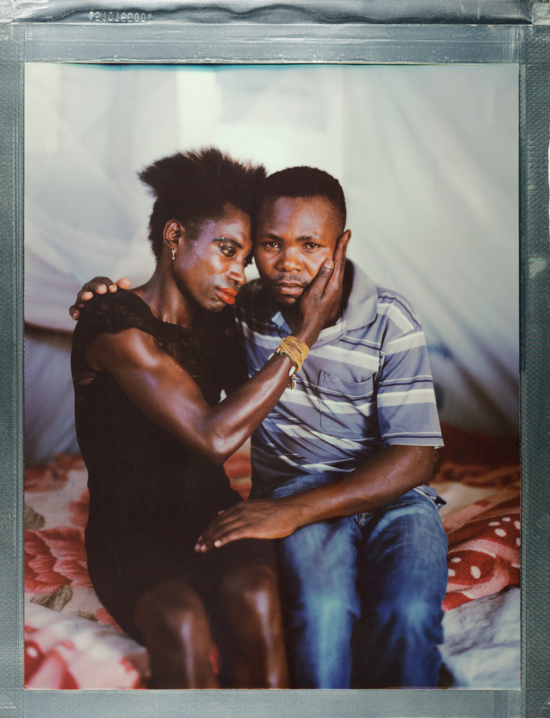Kuteesa & Ernest / Kenya
“I am Kuteesa and my husband is called Ernest. We met here in Kakoma, a refugee camp. I started in Nairobi then came here and met my man. We came here expecting a change but we haven’t seen any but have gotten so many problems in our marriage. Because we had gone to the Clinic 7 hospital one day and met a group of Sudanese who shouted when they saw us and even brought tires and firewood saying they wanted to burn us. They ended up beating me and my husband. We were out of hope when the UN car came and took us to clinic 7. But UN officials just left us there yet we were so hungry and even the doctor that had to attend to us was absent.
We were at the hospital and the doctor who attends to gays was absent. We were so hungry and decided to board a motorcycle back to our home because even the doctor who tried to help us gave us expired lubricants and condoms. The motorcyclist took us back home and our friends paid him. Right now I am suffering from anaemia but have no treatment; I have no money to go to the hospital so I just sit home and suffer from here.”




